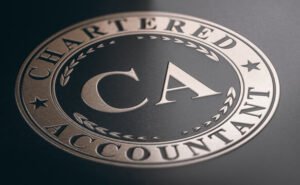CA-an overview
Chartered Accountancy (CA) is a prestigious and globally recognized profession in the field of accounting, finance, and business management. Here’s a concise overview.

Chartered Accountants play a crucial role in ensuring the financial health and compliance of businesses, organizations, and individuals. They are trained professionals equipped with expertise in areas such as financial reporting, auditing, taxation, and strategic financial management.
To become a Chartered Accountant, individuals typically undergo rigorous academic and professional training. This includes completing a recognized CA qualification program offered by professional accounting bodies or institutes, such as the Institute of Chartered Accountants in England and Wales (ICAEW), the Institute of Chartered Accountants of Scotland (ICAS), or the Institute of Chartered Accountants of India (ICAI).
The CA qualification journey often involves a combination of theoretical education, practical training, and professional examinations. Candidates gain in-depth knowledge of accounting principles, auditing standards, tax laws, and financial regulations, preparing them to navigate complex financial landscapes and provide valuable insights to clients and employers.

Upon successfully completing the CA qualification requirements, individuals earn the prestigious Chartered Accountant designation, which signifies their expertise, professionalism, and commitment to high ethical standards in the practice of accounting and finance.
Chartered Accountants work in diverse roles across various sectors, including public accounting firms, corporate finance departments, government agencies, non-profit organizations, and academia. They serve as trusted advisors, financial analysts, auditors, tax consultants, and business leaders, contributing to the growth, stability, and sustainability of businesses and economies worldwide.
In addition to technical proficiency, Chartered Accountants are valued for their analytical skills, problem-solving abilities, ethical integrity, and communication prowess. They play a pivotal role in financial decision-making, risk management, corporate governance, and regulatory compliance, helping organizations achieve their strategic objectives and enhance shareholder value.
The CA profession continues to evolve in response to changing business dynamics, technological advancements, and regulatory requirements. Chartered Accountants stay abreast of emerging trends, best practices, and industry developments through continuous professional development, lifelong learning, and adherence to professional standards and codes of conduct.
Chartered Accountancy (CA) is a globally respected profession that holds a key role in financial management, auditing, taxation, and advisory services. Here are some additional details.
1. Education and Training:

The path to becoming a Chartered Accountant typically involves a combination of academic study and practical training. Candidates usually pursue a degree in accounting, finance, or a related field before enrolling in a recognized CA qualification program offered by professional accounting bodies or institutes.
2. Professional Examinations:
CA qualification programs include rigorous examinations that assess candidates’ knowledge, skills, and competency in accounting and finance. The examinations are designed to test candidates’ understanding of accounting principles, financial reporting standards, auditing procedures, tax regulations, business laws, and ethical standards.

3. Areas of Specialization:
Chartered Accountants often specialize in specific areas of accounting or finance based on their interests, expertise, and career goals. Some common areas of specialization include auditing, taxation, financial analysis, forensic accounting, management accounting, and corporate finance. Specialization allows Chartered Accountants to deepen their knowledge and skills in particular areas and provide specialized services to clients or employers.
4. Professional Ethics and Standards:

Ethical conduct and integrity are core principles of the CA profession. Chartered Accountants are expected to adhere to high ethical standards and professional codes of conduct in their practice. They are required to maintain objectivity, integrity, confidentiality, and professional skepticism while performing their duties and responsibilities.
Overall, Chartered Accountancy offers a rewarding and challenging career path for individuals aspiring to excel in the field of accounting, finance, and business management. The profession offers opportunities for professional growth, leadership development, and making a meaningful impact on organizations and society as trusted advisors and financial stewards.

1 thought on “CA-an overview”